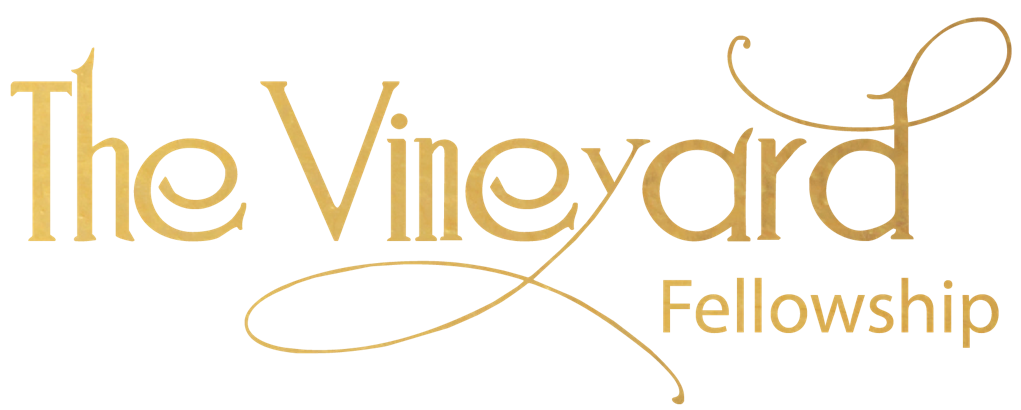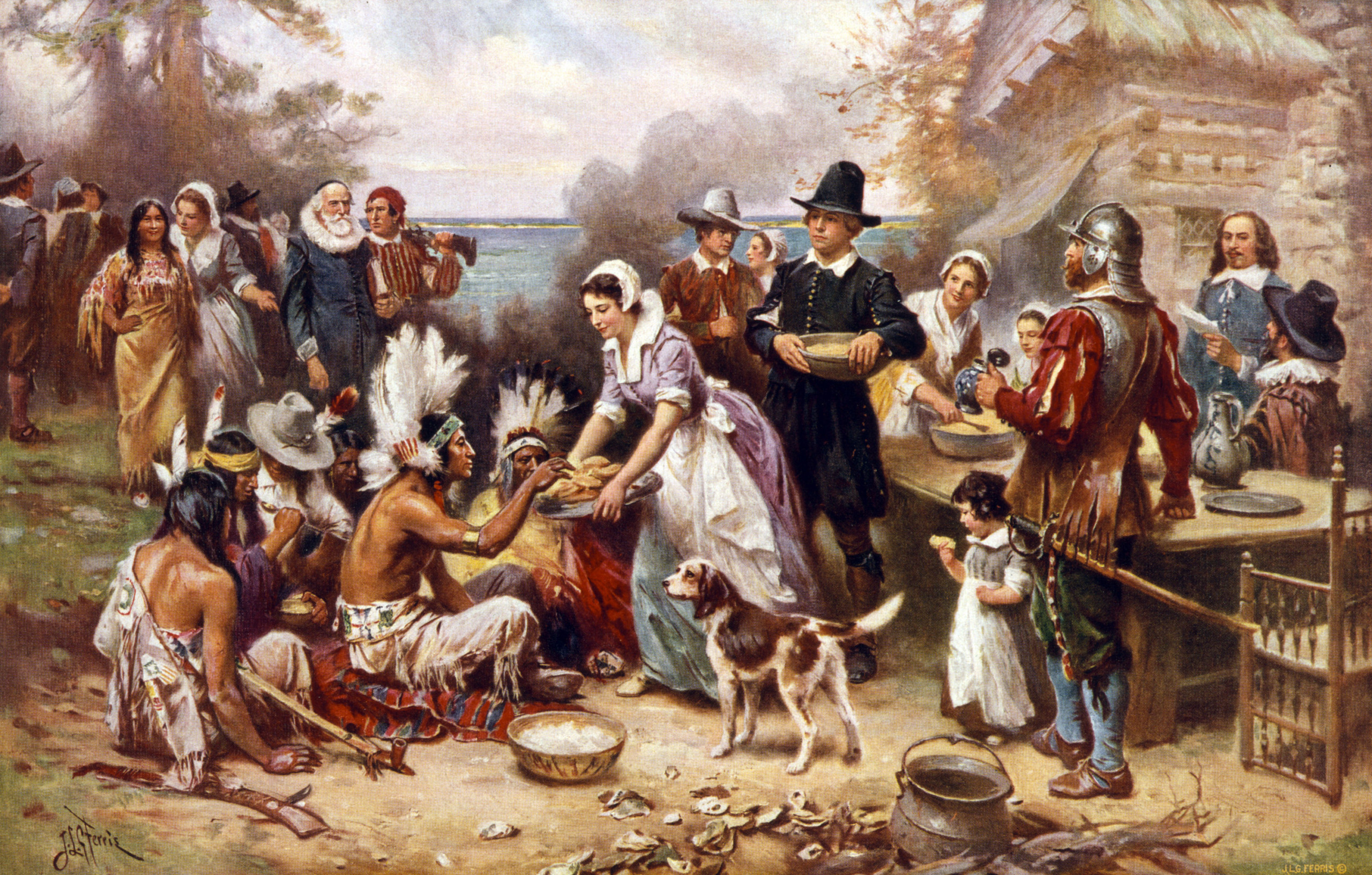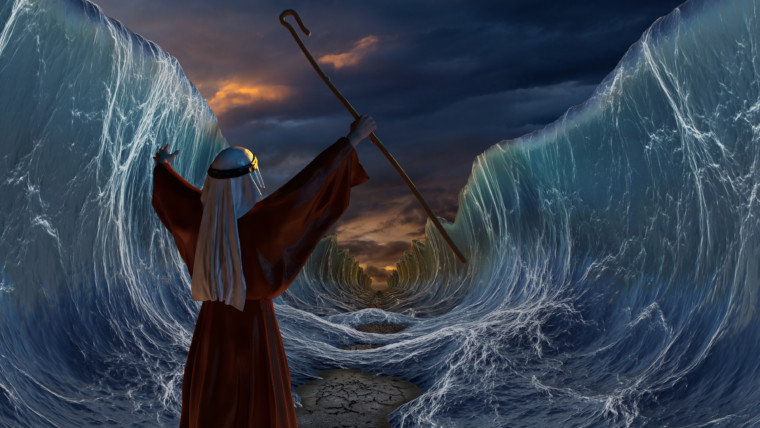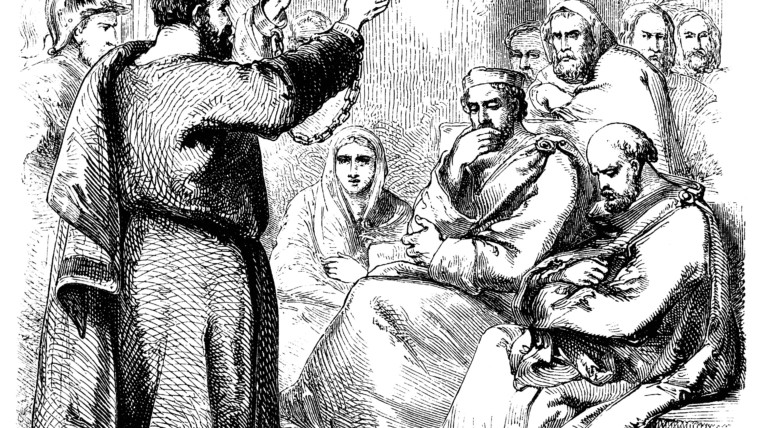Thanksgiving!
by Christine Egbert
Anyone who has been in Hebrew Roots for a while is likely to have run across those who claim that, like Christmas and Easter, Thanksgiving is also pagan. I hope to disprove that assumption in this article. But before I explain why Thanksgiving is not pagan, I will tell you about a fall festival that is. This festival is called Harvest Home.
Encyclopedia Britannica describes it this way: “Harvest Home, also called Ingathering, is a traditional English harvest festival, celebrated from antiquity. It has survived to modern times in isolated regions. Participants celebrate the last day of harvest in late September by singing, shouting, and decorating the village with boughs. The cailleac (last sheaf of corn) represents the spirit of the field. It is made into a harvest doll and drenched with water as a rain charm. This sheaf is then saved until the spring planting. This ancient festival also included the symbolic murder of the grain spirit, as well as rites for expelling the devil. A similar festival was traditionally held in parts of Ireland, Scotland, and northern Europe.
Thanksgiving Is Not Pagan
In the Plymouth Colony, from the 1620s to 1850s, celebrating Christmas and Easter was illegal. We have numerous primary source documents—letters, diaries, and legal documents—that prove that Pilgrims renounced Christmas and Easter because of their pagan origins. We can rest assured that when they called for a day of Thanksgiving, it was not to celebrate Britain’s Harvest Home.
But before I tell you more about the Puritans, I want to share an excerpt from The Light and The Glory, about Christopher Columbus, that was written by Peter Marshall and David Manuel.
“…Their final solution to the ‘Jewish problem’ was disseminated by a royal decree issued in the spring of 1492: All Jews were given three months to get out of the country. So Columbus had to settle for a heavier, slower flagship than he would have desired… As they reached the place where the Tinto joined the Saltés, just before emptying into the ocean, a last shipload of Jews was also waiting for the tide. They too were leaving now… It is doubtful they thought of one another beyond a routine log entry. And even if they had, none of that forlorn shipload of Jewish exiles could have dreamed that the three other ships on the river were leading the way to a land which would one day provide the first welcome haven to their people.”
Peter Marshall and David Manuel included the following translated excerpt from an obscure volume of Columbus’ Book of Prophecies that is available only in Spanish.
“It was the Lord who put into my mind (I could feel his hand upon me) the fact that it would be possible to sail from here to the Indies. All who heard of my project rejected it with laughter, ridiculing me. There is no question that the inspiration is from the Holy Spirit, because He comforted me with rays of marvelous inspiration from the Holy Scriptures… I am a most unworthy sinner, but I have cried out to the Lord for grace and mercy, and they have covered me completely. I have found the sweetest consolation since I made it my whole purpose to enjoy His marvelous presence. For the execution of the journey to the Indies, I did not make use of intelligence, mathematics, or maps. It is simply the fulfillment of what Isaiah had promised…”
Recently, a number of Spanish scholars—Jose Erugo, Celso Garcia de la Riega, Otero Sanchez and Nicholas Dias Perez—determined that Columbus was a Jew, whose survival depended upon suppression of that fact because of Spain’s Inquisition. But as his journal proves, Columbus worshiped Jesus (Yeshua).
The Light and the Glory relates many inspiring as well as sad accounts of men and women who founded this nation by making a covenant with the God of Scripture, only to have their descendants, like the children of Israel, break it time and time again.
The Light and the Glory authors pose this question: What if God deals with nations the way he deals with individuals? After all, Israel, the nation, was chosen to be a light to all the other nations. Deuteronomy 7:6-9 tells us that had Israel obeyed, they would have been mightily blessed.
Now back to the Pilgrims.
The Pilgrims left England for Holland, in search of religious freedom. There they lived for a decade among Sephardic Jews, who were expelled from Spain in 1492, and they witnessed firsthand that biblical Feast called Sukkot.
Like Sukkot, the Pilgrims’ first Thanksgiving in 1621 was eaten outdoors. Just like those Sephardic Jews who welcomed friends to join them for a meal in their Sukkah, the Pilgrims invited the Wampanoag tribe to their first Thanksgiving table.
According to history, the Wampanoag tribe feasted with them for three days. Could it have gone on for seven days plus one? History does not say. But at that first Thanksgiving, just like those Sephardic Jews, the Pilgrims recited the traditional liturgy for Sukkot, Psalms 106 and 107. “Give thanks to the Lord for He is good, for His kindness endures forever.”
William Bradford, the governor of the Plymouth Colony studied the Hebrew Scriptures. History recounts that these Pilgrims saw themselves as a chosen people who were led to a new Promised Land. They based their belief on the parable of the Vineyard found in Matthew 21:38-41:
“But seeing the son, the vinedressers said among themselves, This is the heir. Come, let us kill him and possess his inheritance. And taking him, they threw him out of the vineyard and killed him. Therefore, when the lord of the vineyard comes, what will he do to those vinedressers? They said to Him, Bad men! He will miserably destroy them, and he will rent out the vineyard to other vinedressers who will give to him the fruits in their seasons.”
I will end with one final item I found on a website advertising an extension course in literature from the University of Kentucky. If you’re part of God’s last great move to restore all things before Jesus (Yeshua) returns (Acts 3:21), you will find this bit of history gratifying. (I have changed the spelling of certain words in Bradford’s quote to modern English.)
“In 1650, three years after he had ceased to chronicle the happenings at Plymouth for posterity, and at the age of sixty years, William Bradford took up the study of Hebrew. In a copybook, he listed over a thousand words and a number of common Hebrew phrases, with their English translations. Scholars have remarked that many of the words and phrases concern the duties of fathers to their sons. On one page he paused to explain why, at an advanced age, he had embarked on a new path of learning:
“Though I am grown aged, yet I have a longing desire to see, with my own eyes, something of that most ancient language, and holy tongue, in which the law and Oracles of God were written; and in which God and angels spoke to the Holy Patriarchs of old time; and what names were given to things at the Creation.
“For Bradford, learning Hebrew was an act of filial respect. It was an act of learned devotion with which a son of the Church wished to honor his spiritual forefathers, “the Holy Patriarchs of old time.” It was also Bradford’s way of returning to the origins of Christianity, thus of purifying his faith by seeking a more direct, unmediated experience of divinity. Rather than English biblical scriptures translated from the Latin, themselves translated from the Greek and Hebrew texts, Bradford wanted the originals in that “holy tongue” used to name things “at the Creation.”
Now that you have glimpsed into the hearts of those who celebrated that first American Thanksgiving, I hope you will buy that turkey and invite your family and friends to celebrate God’s goodness. And while you are still at the table, take a page out of that first Thanksgiving and read Psalms 106 and 107. Have a blessed Thanksgiving!



